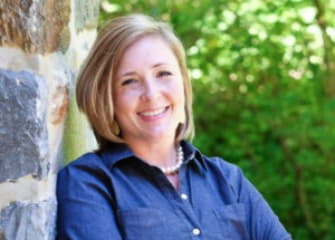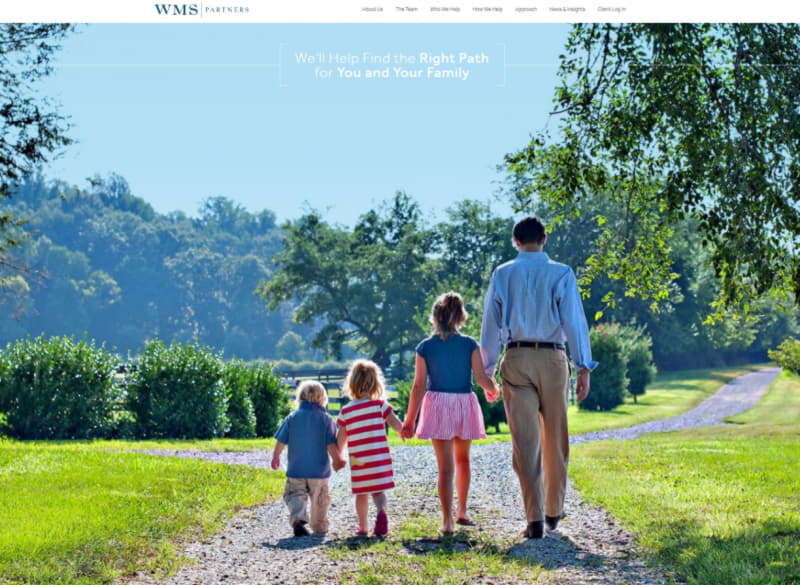
Ginger Mihalik
Click here for Part I & Part III
Baltimore Chesapeake Bay Outward Bound School (BCBOBS) provides outdoor character education programs to youth and adults using an experiential learning model. The Outward Bound network of schools includes 10 other locations in the United States and stretches into 33 countries across the globe. BCBOBS has been operating in the Chesapeake Region via their campus in Baltimore’s Leakin park since 1986.

In 2016, under the leadership of Executive Director
Ginger Mihalik, the school served 6,827 students through a variety of different programs. These include everything from one-day programs on the newly expanded high ropes course to wilderness expeditions with schools. BCBOBS’s primary focus is working directly with schools to be their provider of character education, anoften lacking part of the educational curriculum in schools today. They have successfully done so through the development of the Character Curriculum, the in-classroom component of their experiential learning model that accompanies the Outward Bound expedition for increased skill transference in students.
In addition, BCBOBS runs a variety of community based programming such as expeditions for veterans and grieving teens organizations in Baltimore. The most notable of their community programs is the Police Youth Challenge (PYC) which began in 2008, but expanded to include the entire active duty police force in January 2016. Since then, over 3,000 officers and students from Baltimore City have come together in Leakin Park to shift perceptions, build trust and forge meaningful connections. Tools developed during a 3-year research project with Johns Hopkins University Bloomberg School of Public Health has given the program data that proves the program’s efficacy. It has shown that 86% of Officers feel that they have the skills to positively interact with youth after the PYC, and 23% more youth find Officers trustworthy after the program.
More information about the organization, it’s programs, impact, and how you can get involved can be found at www.outwardboundbaltimore.org.
AL BERKELEY: About how many base camps are there for Outward Bound around the country?
GINGER MIHALIK: I think it’s interesting—there’s about 40 Outward Bounds around the world and there are 11 in the United States. We’re one of those 11.
AL BERKELEY: We have a little bit different mission here in that we have an urban mission. Talk about that.
GINGER MIHALIK: Most Outward Bounds around the world, and locally here in the United States, work on what we call an “open enrollment model.” Anybody could sign their student or their kid up and send them on the course. We work on a different model. We do that in the summer, but really our main focus is working with school groups. We feel really strongly that character education should be a part of every kid's education. It’s not something that happens for most kids anymore. It would normally happen in church, it would happen on a farm; there would be some hardship in their life, where their parents would teach them these lessons and it just doesn’t happen for a whole lot of kids. Schools have tried to pick up the slack in that area but what’s happened is there is nothing out there that they can pull off the shelf and say, “here’s how we educate our kids.” There isn’t a character education program that they can pull off the shelf, and so what happens is you get a teacher that is trying to make it up, or you get a character education program that is really just a “Be Nice” poster on the wall somewhere. We have chosen to try to be that solution for schools in our region. Primarily, that’s our focus: working with schools all over the Maryland, DC, Virginia, West Virginia region.
AL BERKELEY: Talk a little bit about the riots in Baltimore and the result of that for Outward Bound.
GINGER MIHALIK: One of the programs that we run and have been running for a while is our police program. This is a program that we’ve been running since about 2007. It really got going in 2008, but 2007 was a particularly violent year in Baltimore's history. There were lot of shootouts between the public and the police. Commissioner Bealefeld was in the hot seat at that point, and he came to us. He had decided to redesign all of the police departments’ training, and asked us if we would design a program and help implement a program that would do what we do really well: team-build between the public and the police. We designed the Police Youth Challenge to bring police officers and youth together out here and spend a day team-building. That program has evolved over the years to become more structured. Now it’s based off of Allport’s optimal contact theory—this is a theory about how you bring disparate groups together, and it lays out the framework for how you bring people together. It’s not really the conditions that you bring them together under, but how they interact and what happens. We use that theory here. The Office of Juvenile Justice and Delinquency Prevention provided funding to study that program, so we’ve been working with Hopkins for a long time.
AL BERKELEY: And that’s federal.
GINGER MIHALIK: Yes, that’s federal. It provided its funding to Hopkins to get them to study our program and we have seen some phenomenal results.
AL BERKELEY: Bear with me—I want to be sure I understand: The federal government has paid for an independent assessment via Hopkins—what part of Hopkins?
GINGER MIHALIK: The Bloomberg School of Public Health.
AL BERKELEY: Okay. And that’s been going on for how long?
GINGER MIHALIK: We’ve had a relationship with them for probably about six years now. The study was about three years long, though, and it went in different stages. About when the unrest occurred in Baltimore was right when we wrapped up the study. And all of a sudden what we knew intuitively—we knew it worked—we had this data all of a sudden that said if we break down stereotypes, we bring people together, we close social distance, we can change the way people behave based on how they think about each other. We were in this opportune moment to help to be the people that step in and make a difference. We were working with all of the police academy up until that point.
AL BERKELEY: Working only with the police academy—with the cadets?
GINGER MIHALIK: Yeah.
AL BERKELEY: And so now you’ve got academic validation of the underlying academic theory that you’re using.
GINGER MIHALIK: Exactly.
AL BERKELEY: So this isn’t just pieced together on a feel good basis.
GINGER MIHALIK: No. There’s been a lot of thoughtful program development that has gone into this program to make sure that we’re actually helping people. We’re not just bringing them out for a day of fun; there’s a curriculum behind what we do and a purpose behind every game we play, every high rope activity that we do—it’s not just for fun. Recently—and I shared it with our board member, Ganesha Martin, and I think it did draw tears from her—I had a text message shared with me: it was a recording of a girl who had spent the day with a police officer on our course, and at the end of the day she went to her instructors—the officers were gone—and she said, “I want to get a message to my officer.” She recorded this message into our instructor’s phone, and she went on and on, and said, “You were like a mother to me. I wish my mother was still alive, and nobody’s ever been so nice to me.” It was a game changer, and when you hear this, you can hear the heartbreak in a kid who is looking for an adult to connect to. That police officer was that person that day. That is what we’re trying to do. We’re not just trying to get people out to have fun and say, “you‘re cool, I like you” and say hi on the street—it’s deeper than that. We’re trying to build these connections between them.
Connect with Ginger on LinkedIn
Sponsored by:
Founded in 1993, WMS Partners is the only independent multi-family office in the Baltimore area that isn’t associated with a brokerage firm, bank or trust company. Our team of approximately 50 professionals and 14 owners spanning three generations assists in the direction of our client’s financial goals and objectives and oversees in excess of $3 billion in assets.
As our client’s advocate and central point for their financial affairs, we work pro-actively with service providers, including accountants, attorneys, consultants, insurance professionals and philanthropic advisors. We are large enough that we provide exposure to many unique ideas and strategies in the investment, estate, tax, financial advisory and risk management arena; but small enough to provide discreet, pro-active individualized guidance.


Edwin Warfield, CEO of citybizlist, conducts the CEO Interviews.
If you're interested in reaching CEOs, please contact edwin.warfield@citybuzz.co
Connect on LinkedIn



































